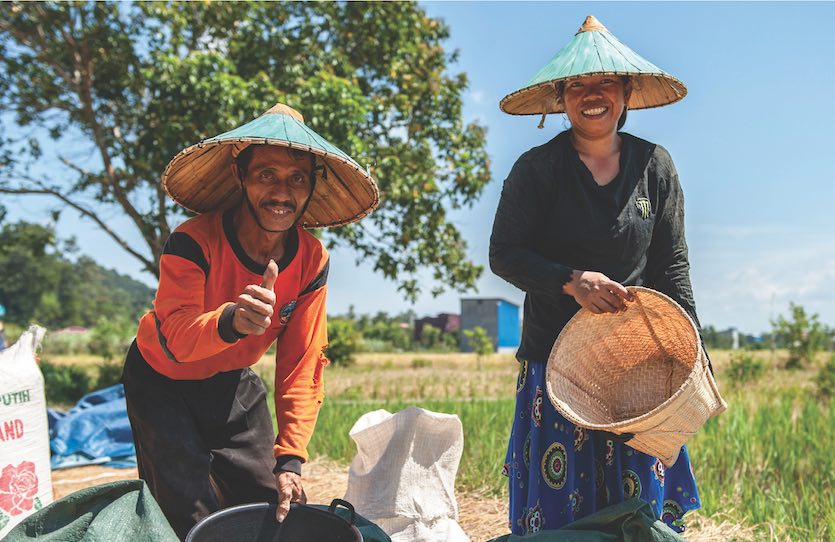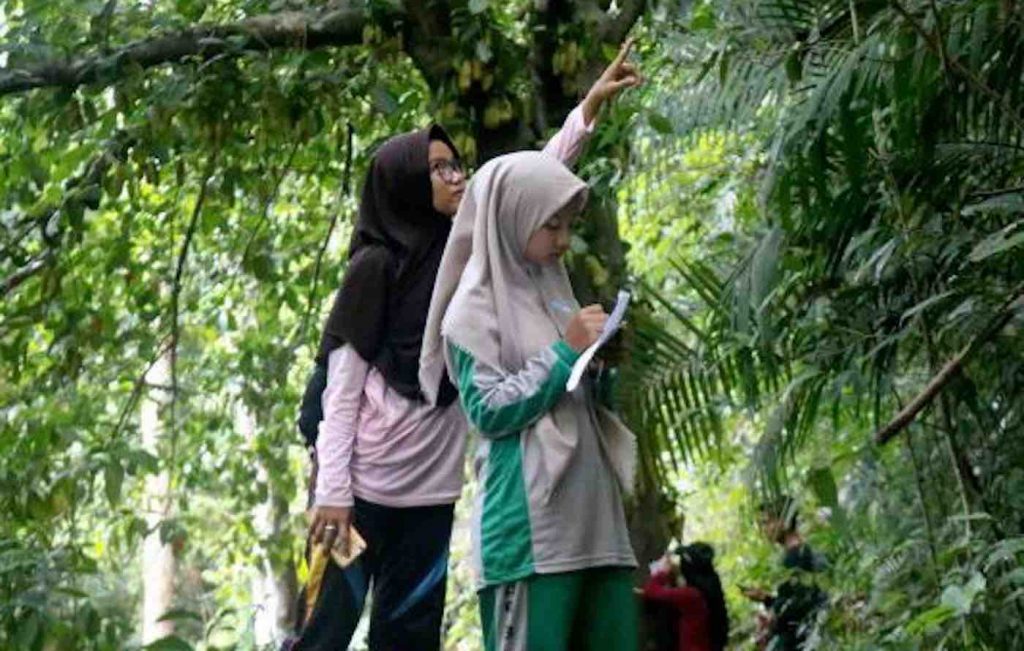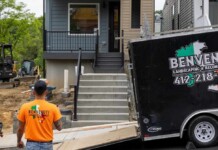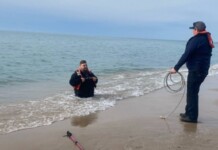We can take shorter showers. We can try to recycle our plastic. We can make sure to turn the lights off in our homes at night. But the sense of urgency in the face of our climate crisis leaves some people discouraged because there isn’t more they can do.
For 13 years, however, Health in Harmony has been offering caring citizens of the world a way to reduce their impact on the environment—a chance to minimize, or even neutralize, their carbon footprint in ways that benefit so much more than just the CO2 equation.
The intrepid nonprofit is allowing people to buy personal carbon-offsets and using the money to benefit rural communities in Borneo and Madagascar. The brilliance behind their program is the way it addresses the locals in and around these tropical rainforests who are both impoverished, and living nearby some of the most important and vulnerable ecosystems on earth—ecosystems that if lost could place the goal of overcoming our impact on climate forever beyond our reach.
Tropical rainforests are the Fort Knox of carbon storage, as well as bastions of biodiversity. Many tracts, like Gunung Palung National Park on the island of Borneo have been hit hard by slash-and-burn agriculture and illegal logging, because struggling locals look for ways to make money and feed their families.
Based in Portland, Oregon, Health In Harmony offers people worldwide the opportunity to buy tropical tree seedlings that, when matured, will sequester a certain amount of carbon per year. But the impact here is profound.
According to an article in Fast Company, during its first ten years the program achieved 90% reduction in logging activities within households where the nonprofit was operating. This resulted in an astonishing regrowth of 52,000 acres of rainforest.

Kinari Webb, founder of Health In Harmony explained that 95 trees will offset the carbon emitted by an average American—while planting them ensures the survival of one of the most biodiverse places on earth.
WATCH: First Drone Project of Its Kind in Canada is Aiming to Plant 1 Billion Trees by 2028
With the group’s carbon-offset calculator, you can enter in key contributors in your own personal carbon footprint such as how much gasoline you use, or how many miles you’ve flown on airlines, and the calculator will come up with the cost of that carbon footprint as it relates to buying seedlings to be planted in Borneo and Madagascar.
According to Webb a monthly donation of $31.00 is likely enough to make you a carbon-neutral citizen.
And, to assuage your skepticism about reforestation efforts that don’t ensure saplings’ survival, Webb says that during the first 3 years, watering, weeding, fertilizing, and fire prevention are regularly provided for the trees. Over their first 10 sites they’ve seen a survival rate of 80%.
They diversify, using over 100 native tree species and indigenous fruit trees, while also compensating for failure by planting more than is needed to account for tree death during infancy and adolescence. These steps ensure that the full biodiversity compliment of the jungle can return even in the plantations. But, that is just the beginning.
Not Just Planting Trees, Transforming Villages

Part of the money from your carbon offset purchases also provides healthcare, sustainable agriculture training, and economic empowerment for the villages near Gunung Palung National Park.
A “green credit” system allows the residents who work to reduce illegal logging to receive discounts of up to 70% on medical services at the medical facilities of Health In Harmony’s partner on the group ASRI. They can even pay for medical care with things like tree seedlings, artisan goods, and manure.
MORE: People Have Passively Planted Over 30 Million Trees Simply by Surfing the Web
ASRI also works with village chiefs to nominate a Forest Guardian. Respected members of their community, the Forest Guardians are trained by ASRI to work with illegal loggers to try and convince them to put down their chainsaws. They spread awareness of alternative ways of generating income while earning discounts on medical services for themselves and their neighbors.
Sustainable modern agriculture techniques are replacing slash and burn methods which have been destroying the rainforest while yielding fewer crops. In 2018, locals were producing more crops for their families and selling the remainder for additional income. In July 2018, Health In Harmony’s Kitchen Gardens, and Goats for Widows projects allowed women at home to generate their own income from farming small plots of land or keeping goats whose manure and milk helped wives who had lost their husbands to stay afloat financially.
Next Up: Madagascar and Her Lemurs
Beyond a second, even larger, Indonesia site called Bukit Baka Bukit Raya National Park, which is a critical sanctuary for orangutans, Health In Harmony has expanded its operations to another biodiversity mecca: Madagascar.
RELATED: Scientists Use Recycled Sewage Water to Grow 500-Acre Forest in the Middle of Egyptian Desert
Madagascar’s forests are massively at risk from logging and agriculture, and with them almost 100 species of lemur, the charismatic primate found nowhere else on earth.
In the autumn of 2019, Health In Harmony began setting up reforestation, healthcare, agricultural training, and more in Manombo Special Reserve, a 14,300-acre protected area in southeast Madagascar, home to nine species of lemur—all of which are threatened with extinction.
Health In Harmony is proving that any concerned citizen can do far more than recycle to prevent climate change, and that the power of their dollar can help a lot more lifeforms than humans and trees.
Share This Incredible Opportunity With Your Friends on Social Media



















